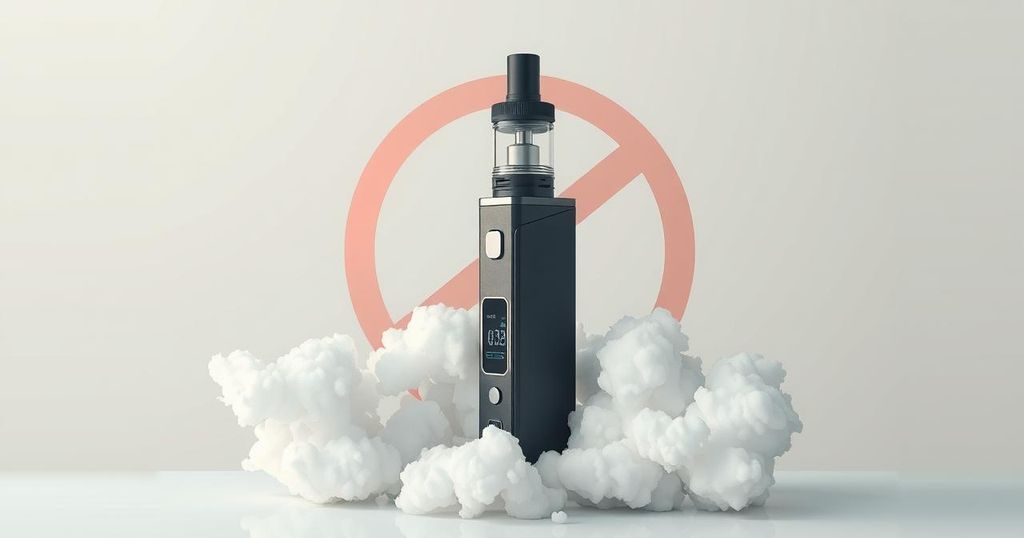The article discusses the rising trend of vaping among children and adolescents, emphasizing the risks of nicotine addiction and its long-term health implications. Key countries like Vietnam, Maldives, and Belgium have taken legislative steps to ban or regulate vaping to protect youth. Experts stress the importance of early intervention alongside bans to address this growing concern.
The increasing trend of vaping among youth raises significant concerns regarding nicotine addiction and its implications on health. According to Dr. Gupta, nicotine vapors are quickly absorbed into the bloodstream, prompting dopamine release, which fosters addiction. This poses a heightened risk for children and adolescents, whose developing brains may lead them to transition from vaping to more harmful smoking habits.
Mothers Against Vaping is actively raising awareness about these addiction patterns. They emphasize that key stakeholders such as parents and educators must identify early signs of addiction and take preventive measures against vaping, seen as a gateway to more dangerous habits.
Dr. Bhavna Barmi, a clinical psychologist, underscored that simply imposing bans is insufficient. He advocates for early intervention strategies targeted at shielding youth from manipulative advertising and colorful vaping products that attract them. Children are particularly vulnerable due to their developing minds and social pressures, often leading them to experiment with vaping.
Countries such as Vietnam and Maldives have joined 33 nations, including India and Brazil, in prohibiting vape consumption. In contrast, Belgium has stepped forward as the first European Union nation to ban disposable vapes entirely, effective January 1, 2025. This initiative seeks to combat nicotine addiction among the youth and protect environmental health, as disposable vapes contribute significantly to waste.
The World Health Organization (WHO) has highlighted the urgent necessity to regulate e-cigarettes to safeguard public health, particularly for children and non-smokers. E-cigarettes are often marketed towards adolescents through social media and influencers, with over 16,000 different appealing flavors designed to attract young consumers. The WHO’s concerns emphasize the alarming rise in e-cigarette use among minors, which is reportedly higher than that of adults in several countries.
The alarming rise in vaping among youth necessitates urgent action from all stakeholders to combat nicotine addiction’s threat. Countries worldwide are taking significant steps to regulate or ban e-cigarettes, particularly disposable products, to protect young people and the environment. Moreover, educational initiatives must coincide with legislative action to ensure effective early intervention against this growing health concern.
Original Source: m.economictimes.com






